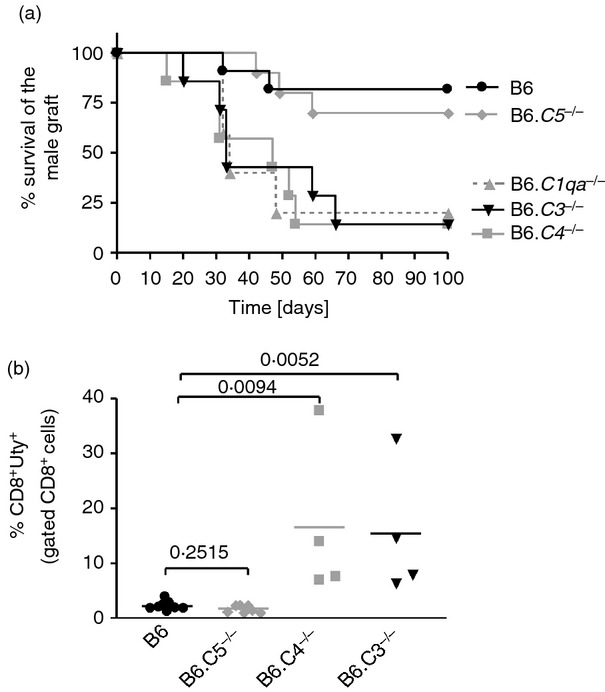Figure 1.

Impaired induction of tolerance in mice lacking early components of the classical complement pathway. B6 wild-type (WT; black circle), B6.C1qa–/–- (grey triangles), B6.C4–/– (grey squares), B6.C3–/– (black triangles) and B6.C5–/– (grey diamonds) female mice were given HY-AbDby peptide (100 μg for 3 days) intranasally. (a) Survival of syngeneic male skin grafts transplanted on peptide-treated female WT (n = 11), B6.C1qa–/– [n = 5, median survival time (MST) 34 days, P = 0·0141], B6.C4–/– (n = 7, MST 47 days, P = 0·0045), B6.C3–/– (n = 7, MST 33 days, P = 0·0030), B6.C5–/– (n = 10, P = 0·6039). Syngeneic female grafts were accepted indefinitely. Statistical analysis was performed using the log-rank method comparing separately each complement-deficient strain to peptide-treated WT B6. (b) 100 days after skin grafting, selected mice were injected intraperitoneally with 5 × 106 male splenocytes and 7 days later spleen cell suspensions were analysed for HY-specific CD8 T-cell responses (HY-DbUty dextramer+ CD8 T cells) by flow cytometry. B6 (n = 9), B6.C5–/– (n = 7), B6.C4–/– (n = 4), B6.C3–/– (n = 4). Statistical analysis: t-test.
